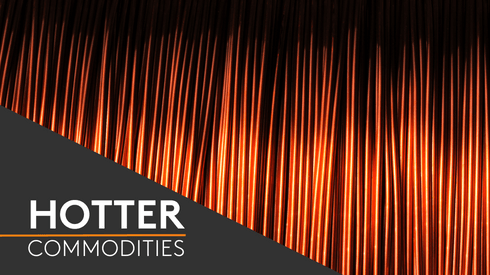Aluminium producers are including a tariff in the price of products sold to beverage companies despite the majority of that metal being exempt from tariffs, Representative Ken Buck alleged in a February 2 letter to US Assistant Attorney General Jonathan Kantor.
Buck, a Republican Party member from Colorado, has introduced legislation he believes will help prevent this.
Roughly 70% of the aluminium used in beverage cans comes from recycled aluminium and an additional 16% comes from domestic or Canadian smelters, all of which are exempt from duties such as the additional 10% tariff on aluminum imports under Section 232 of the Trade Expansion Act, Buck said.
“The unwillingness of aluminium producers – including Alcoa, Rio Tinto and Century Aluminum, among others – to offer duty-free aluminium not only results in unjustified windfall payments but is also highly suggestive of anti-competitive price collusion,” Buck alleged in his letter.
Buck recently introduced legislation to expand the US False Claims Act, which makes it illegal for a private party to knowingly defraud the federal government. Under Buck’s proposal, parties would also be subject to liability if they incorrectly collect monies they claim are owed – such as tariffs – without transferring the amount to the government.
Get notified when Andrea Hotter publishes new articles and interviews on the natural resources sector. Receive the latest stories straight to your inbox.
US aluminium producers
Alcoa, Rio Tinto and Century Aluminum are the largest producers of aluminium in North America.
In 2023, Alcoa produced around 265,000 tonnes of aluminium at its two smelters in the US and 961,000 tonnes at three operations in Canada, with its yearly global production totaling 2.18 million tonnes.
Meanwhile, Rio Tinto produced 1.93 million tonnes of aluminium at its smelters in Canada in 2023, with yearly global production totaling 3.27 million tonnes.
Century Aluminum operates two smelters in the US and shipped 768,691 tonnes in 2022; it has not yet released its data for 2023.
But from May 1, metal brands produced at Century Aluminum’s Mt Holly and Sebree smelters will be temporarily suspended for warranting on the London Metal Exchange due to procedural policies, the company said.
Century Aluminum is working to obtain specific ISO certifications to meet LME criteria and resume warranting, a company spokesperson told Fastmarkets. “We continue to sell our metal in the market without disruptions and plan to regain the list over the next few months,” he added.
The US Midwest premium is a long-standing transaction charge, according to a spokesperson for the Aluminum Association (AA). Regional transaction premiums are common in the aluminium industry around the world, including the Rotterdam premium in Europe and the Shanghai premium in Asia, he told Fastmarkets.
“Aluminium pricing in the United States is already overseen by the Commodity Futures Trading Commission (CFTC), which has indicated that they have not seen any signs of market irregularities in the aluminium sector,” the AA spokesperson said in a statement to Fastmarkets.
“That said, we will work with Congress and the administration in any fair and transparent review of the system, providing data and information as appropriate,” he added.
The Aluminum Association represents companies that make 70% of the aluminium and its products shipped in North America, including Alcoa and Rio Tinto. It plays no role in developing the Midwest premium, or any other aspect of aluminium price discovery.
Alcoa and Rio Tinto declined to comment, and Century Aluminum was not available at the time of publishing.
Midwest premium
In his letter, Buck also reiterated his claim of serious pricing irregularities in the aluminium markets involving major producers in the US as well as other market participants and urged the US Attorney General to open an antitrust investigation.
Buck has been a long-time sponsor of the Aluminum Pricing Examination (APEX) Act, bipartisan legislation which was originally introduced into the House of Representatives in October 2018 and reintroduced in April 2021.
And legislation introduced in the US Senate in 2018 focused on how the US Midwest premium is calculated and set.
A number of consumers – including the Beer Institute, the American Beverage Association, the Brewers Association and the Can Manufacturers Institute – say that aluminium users have faced millions of dollars in supply chain cost increases because of an artificially inflated US Midwest premium.
“The False Claims Act is a common-sense proposal that will provide much-needed transparency in aluminium pricing,” Gavin Hattersley, president and chief executive officer of brewery Molson Coors, said in a press release. “Aluminium is the single largest commodity cost across the beer industry, making it imperative to have fair and open price discovery processes for buyers and sellers alike.”
Buyers of aluminium, including the beverage industry, are encountering serious pricing irregularities and potential anti-competitive conduct by aluminium producers, merchants, traders and others which warrant investigation by the Justice Department, Buck alleged in his recent letter.
“These pricing irregularities have artificially inflated the price of aluminium significantly beyond what it should be on the free markets. These inflated costs are inevitably passed along to consumers,” Buck’s letter alleged.
The Midwest premium was the main culprit for the pricing irregularities, Buck alleged, citing price manipulation in a market with no government oversight.
Brian Crawford, president and CEO of the Beer Institute, welcomed Buck’s move to expand the False Claims Act.
“Brewers, beer importers and every industry that relies on aluminium are sick and tired of paying a tariff price on non-tariff metal,” Crawford said in a press release. “Our industry has felt the squeeze from Section 232 aluminium tariffs for too long. Aluminium is the single largest input cost in brewing, and the lack of transparency in aluminium pricing hurts consumers.”
Fastmarkets – an independent price-reporting agency that has no vested interest in whether the price of a commodity it covers moves up or down – learned that aluminium premiums have been mostly affected by weak spot demand and low market activity in parts of Asia and in Brazil, while some markets remained supported amid growing tightness.
Fastmarkets assessed the aluminium P1020A premium, ddp Midwest US at 18.25-19.25 cents per lb on Tuesday February 6, down by 0.69% week on week from 18.50-19.25 cents per lb and down by 37.24% year on year from 27.75-32 cents per lb.
In Hotter Commodities, special correspondent Andrea Hotter covers some of the biggest stories impacting the natural resources sector. Sign up today to receive Andrea’s content as it is published.






